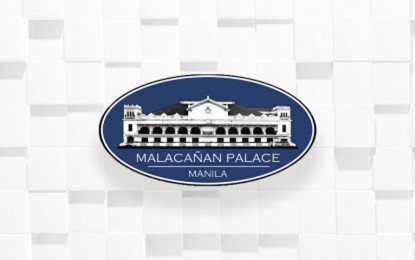
MANILA – President Ferdinand R. Marcos Jr. has institutionalized the Philippine Open Government Partnership (PH-OGP), a multilateral organization of reformers inside and outside of government.
Under Executive Order (EO) 31 inked by Marcos on June 20, the PH-OGP has been institutionalized as a “multi-stakeholder partnership responsible for overseeing and implementing the country's commitments to the OGP.”
“The Philippine Open Government Partnership (PH-OGP) has evolved into a vital platform for introducing governance reforms through harnessing technology, creating synergy with CSOs (civil society organizations), and mainstreaming these innovations in various levels of government,” the EO read.
“To further strengthen the engagement of government and non-government champions, there is a need to institutionalize the PH-OGP as a mechanism for the delivery of more effective and sustainable actions to address current social concerns,” it added.
EO 31 forms a steering committee that will be chaired by the Department of Budget and Management (DBM) Secretary and serve as policy- and decision-making body for the PH-OGP.
The PH-OGP Steering Committee is mandated to ensure that open government values are embedded in government policies and programs.
Members of the PH-OGP Steering Committee include the Executive, Local Government, and Social Welfare secretaries; the National Economic and Development Authority director general; four government sector representatives identified by the Chairperson as non-permanent members; Union of Local Authorities of the Philippines national president; and 10 CSO representatives.
According to EO 31, the four non-permanent members will be identified from the government sector based on future directions set in national government priorities, while the CSO members will be elected through a selection process.
“The non-permanent members and CSO members shall have a term equivalent to the period of the PH-OGP NAP (National Action Plan) cycle,” the EO said. “The PH-OGP Steering Committee may invite representatives from the Legislative and Judicial branches of government, to effect synchronization and complementation of open government initiatives and programs.”
The PH-OGP NAP, co-created through a multi-stakeholder process, should contain commitments from the government, including a concrete set of actions, programs and projects that conform to the OGP values.
The PH-OGP Steering Committee is tasked to set the policy direction in the development and formulation of the NAP; integrate open and inclusive government principles in national and local governance processes; and monitor and evaluate the implementation of the action plan.
It is also directed to publish an annual monitoring and evaluation report on the accomplishments of the NAP, as well as to develop a communication and advocacy plan focusing on the PH-OGP processes and goals.
The PH-OGP Steering Committee is mandated to hold regular quarterly meetings and call for special meetings when necessary.
“The PH-OGP Steering Committee shall set the direction, programs, and activities of the PH-OGP, and promote open and participatory governance through advocacy and outreach activities,” EO 31 read.
The PH-OGP Chairperson is authorized to designate a Point of Contact (POC) who will be responsible for coordinating local and international OGP activities, engaging and convening stakeholders on a regular basis, and organizing OGP activities and initiatives.
The POC will be supported by the PH-OGP Secretariat under the DBM and a CSO counterpart identified by the incumbent CSO Steering Committee members.
The funding requirements for the initial implementation of EO 31 will be charged against the available appropriations of the PH-OGP Steering Committee member-agencies, subject to pertinent budgeting, accounting, and auditing laws, rules and regulations.
Operational expenses of the PH-OGP, including the activities of the PH-OGP Steering Committee, will be taken from the available appropriations of the DBM.
“Thereafter, the funding requirements for the succeeding years shall be included in the General Appropriations Act, under the respective appropriations of each of the member-agencies, subject to the usual budget preparation process,” the EO, which takes effect immediately upon publication in the Official Gazette or in a newspaper of general circulation, said.
The OGP, co-founded by the Philippines in 2011, is a multilateral organization of reformers from government, civil society networks, businesses, and non-profits reflective of the values of access to information, public accountability, citizen participation, and leveraging technology and innovation to strengthen governance.
It includes 77 countries, 106 local governments, and thousands of civil society organizations whose ultimate goal is to promote transparent, participatory, inclusive, and accountable governance.
In a statement, Budget Secretary Amenah Pangandaman expressed her sincerest gratitude to President Ferdinand R. Marcos Jr. for supporting the DBM's advocacy for an open and transparent government.
She said the institutionalization of the PH-OGP would strengthen the Marcos administration’s push for digital transformation and transparency as it would pave the way for the establishment of reliable data systems that are “responsive to the people's needs.”
"The issuance of EO 31 will guarantee strengthened public participation and allow quality citizen involvement and cooperation to be the norm. This will surely support our Agenda for Prosperity," Pangandaman said.
"With an institutionalized PH-OGP, we will be able to further advance openness, transparency and inclusivity in national and local governance processes. This will allow our people to participate, be heard, and be a part of the consensus-building that will propel our nation's growth," she added. (PNA)
